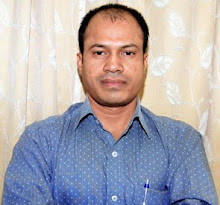(TOI)
COLOMBO. Remnants of Sri Lanka's defeated Tamil rebels are undergoing military training in India in a bid to revive their separatist campaign at home, the island's prime minister said Thursday.
D.M. Jayaratne said an unknown number of Liberation Tigers of Tamil Eelam (LTTE) fighters were based at secret camps in the south Indian state of Tamil Nadu.
"We have intelligence reports of three clandestine training centres operated by the LTTE in Tamil Nadu," the prime minister said in a statement on Thursday.
He said the rebels, who were defeated by Sri Lankan government troops in May 2009, were hoping to relaunch their decades-long fight for an independent homeland in the island.
"Their next target is to create small-scale attacks," Jayaratne said. "The entire nation must be ready to face this threat."
No rebel attacks have been launched since the Tigers were wiped out, but the premier told parliament on Wednesday that the country needed to maintain tough emergency laws to deal with their possible resurgence. Sri Lanka has resisted international calls to end emergency laws, which are routinely approved by parliament. The United Nations estimates that up to 100,000 people died in the ethnic conflict which lasted from 1972 until 2009. The opposition accuses the government of using emergency laws to stifle political dissent and the media, charges denied by the authorities.
COLOMBO. Remnants of Sri Lanka's defeated Tamil rebels are undergoing military training in India in a bid to revive their separatist campaign at home, the island's prime minister said Thursday.
D.M. Jayaratne said an unknown number of Liberation Tigers of Tamil Eelam (LTTE) fighters were based at secret camps in the south Indian state of Tamil Nadu.
"We have intelligence reports of three clandestine training centres operated by the LTTE in Tamil Nadu," the prime minister said in a statement on Thursday.
He said the rebels, who were defeated by Sri Lankan government troops in May 2009, were hoping to relaunch their decades-long fight for an independent homeland in the island.
"Their next target is to create small-scale attacks," Jayaratne said. "The entire nation must be ready to face this threat."
No rebel attacks have been launched since the Tigers were wiped out, but the premier told parliament on Wednesday that the country needed to maintain tough emergency laws to deal with their possible resurgence. Sri Lanka has resisted international calls to end emergency laws, which are routinely approved by parliament. The United Nations estimates that up to 100,000 people died in the ethnic conflict which lasted from 1972 until 2009. The opposition accuses the government of using emergency laws to stifle political dissent and the media, charges denied by the authorities.


No comments:
Post a Comment